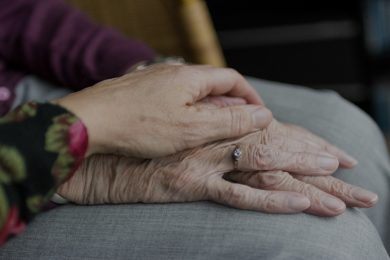My field of specialization for “treatment and prevention of suffering” is still “unknown to professionals and citizens,” its resources are scarce, and it is pursued after it is “too late.”

“Placing the euthanasia law in the context of little access to palliative care is perverse and unfair, especially for the most fragile and vulnerable people, for those who are in the greatest suffering. We are pushing people towards an extreme solution,” nurse Catarina Paz told Agência ECCLESIA. When they are not given access to other possibilities.
The administrator reported “great illiteracy” about health issues, “whether in palliative care, or rights in advanced or terminal stage of disease, and knowledge of legislation that allows a patient to give informed consent to interventions they do not want or do not want to make. Viz.”
He stressed that “there is a global illiteracy in this field that contributes to the complex process of euthanasia law.”
The area specializing in “treatment and prevention of suffering” is about 30 years old in Portugal, but Catarina Bazes understands that it is still “new enough” to be little known among the population but also among health professionals.
“It is not yet known by many professionals, it is not there in many places, access in some places does not have sufficient resources to respond appropriately, patients themselves are not informed about access to this care, it is accessed too late, and society itself is not informed. What we are talking about, does not demand or delay the decision to seek this care,” he highlights.

“I think our idea of euthanasia is centered around something that gives us control over our lives, and it’s linked to the fear of losing control. Palliative care is centered on the person and the control they can have in their life. But that wasn’t taken into account at any point in this legislative process.” , he explains.
“When we legislate and we want to increase the possibilities of choice and we care about the autonomy of the patient, so that he can choose what he wants and what he does not want, we must have the idea that this autonomy should be exercised when the patient is informed and has the possibility of active and real participation in decision-making. The failure to Exercising autonomy can bring suffering, because this is not only physical, it is also psychological, and it can come from our change in control,” he adds.
Katharina Bazis asserts that the state is not ready to pass this law or that it would be an “added value”.
The official points out the need to ensure that “anyone in a state of suffering due to a disease” finds a response “from the point of view of health in the best way possible, with access to healthcare specialized in treatment and prevention of suffering.”
He concludes, “The lack of knowledge about palliative care runs through the community and the health professionals themselves.”
The vote on the euthanasia law was scheduled for this morning in the Committee on Constitutional Affairs, Rights, Freedoms and Guarantees, and it was postponed for the third time in a row.
L.S

“Writer. Analyst. Avid travel maven. Devoted twitter guru. Unapologetic pop culture expert. General zombie enthusiast.”
